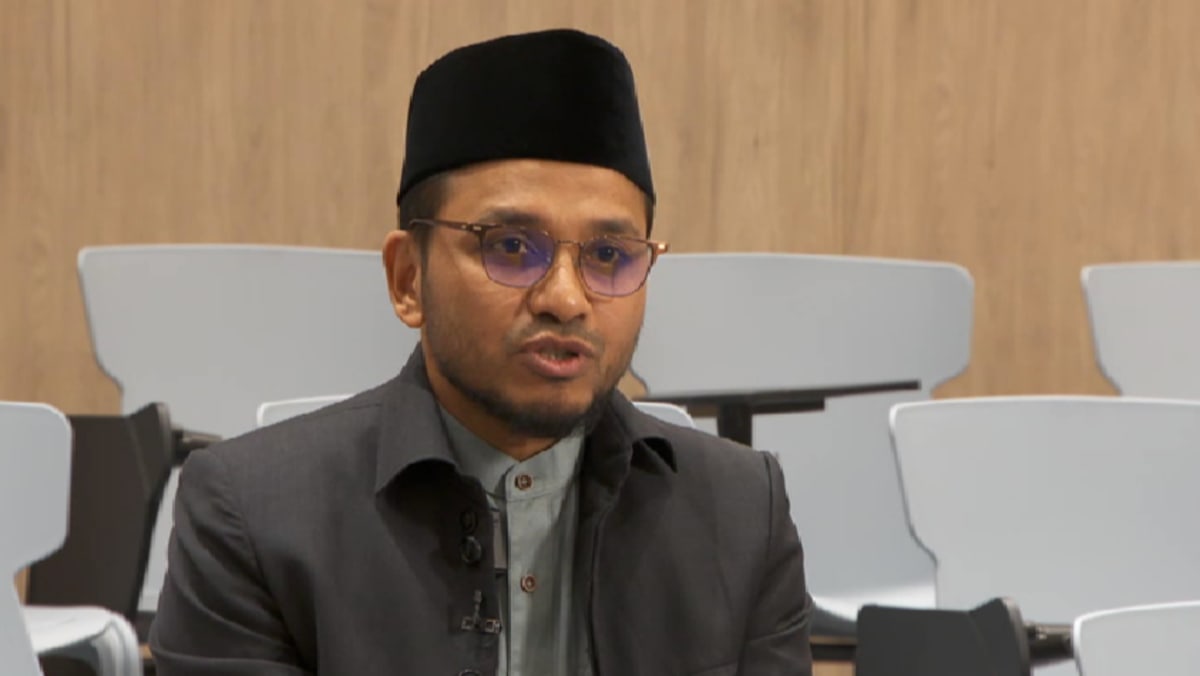SINGAPORE: The new Singapore College of Islamic Studies (SCIS) will take in its first cohort of 60 students in 2028, with classes held at the Islamic Religious Council of Singapore’s (MUIS) learning campus near Bencoolen Mosque.
As part of their learning, students will be able to take subjects like psychology and technology as part of their curriculum, said Singapore’s Mufti Nazirudin Mohd Nasir.
Taken together with Islamic studies, these classes will allow students to understand community issues through both traditional and social science perspectives, he said.
Dr Nazirudin, who heads the steering committee overseeing the planning and development of SCIS, spoke to the media about the college’s plans and aspirations on Monday (Nov 11).
He noted that religious teachers, also known as asatizah, contribute not only to religious institutions, but also to various fields that include social work and counselling.
“The asatizah of the future must be very familiar with an interdisciplinary perspective … not just understanding religious text and instruction, but also able to engage … and understand society beyond the religious realm,” he said.
“(By) incorporating social science with Islamic studies, even (students) who may not specialise in the social science pathway, when they look at problems and challenges in society, they will be able to calibrate very comfortably between the Islamic traditions as well as the social science perspectives.”
Students at the college will take a foundational year in Islamic studies, with the option to specialise in the subject or in social sciences thereafter.
Graduates will qualify as a Tier 1 asatizah and be certified to teach and preach Islam in the nation.
Currently, graduates from institutions abroad must undergo the Postgraduate Certificate in Islam in Contemporary Societies before they can be recognised as a religious teacher in Singapore. The programme helps graduates contextualise Islamic teachings they learnt overseas to the Singapore context.
SCIS’ graduates will not have to go through the course as the four-year degree curriculum will already be embedded with aspects of the programme and taught in a local context.
Prime Minister Lawrence Wong spoke about the college on Sunday, saying that it will strengthen capabilities to nurture and groom a pipeline of future asatizah.
“We want them to have the knowledge and skills to provide religious guidance for our Muslim communities, but to also have an understanding of religion that’s contextualised for living in a diverse, multicultural society like Singapore, and to guide our Muslims in responding confidently to issues of the modern world,” he said.
WORKING WITH GLOBAL INSTITUTIONS
Dr Nazirudin said that since the idea of the college was mooted in 2016, the committee has worked with established global institutions to study their set up, faculty and curriculum.
He added SCIS is working on faculty development among local qualified asatizah, who will form the core of the faculty and teach most of the modules.
The college will bring in global institutions and international scholars, and provide a tertiary education that is moulded for Singapore and unique to the nation’s context and challenges, he said.
Those that the SCIS partners with will contribute to the curriculum from various expertise, including social sciences and their incorporation in Islamic studies, contemporary issues in Islam, and fatwa (religious rulings) related work.
He said the college carefully selects partners who share similar concerns and approach in engaging with modern and contemporary issues. They are also familiar with Singapore’s multi-religious society and support the nation’s approach.
He added such collaborations with global institutions will boost the college’s value proposition, alongside leveraging Singapore’s branding and reputation.
“If you go to an institution that partners with various reputable institutions around the world, then you will get the best of each … giving (students) opportunities to interact with these other scholars from abroad,” he said.
ADMISSION REQUIREMENTS
Dr Nazirudin said admission requires a student to have foundation in the Arabic language and Islamic studies, and will focus on those who have passed through the madrasah system. The college will also accept overseas students who meet certain criteria.
He said the SCIS will incorporate technology-based learning platforms and tools as part of the curriculum.
“We recognise that the higher education sector is evolving. Our younger generation are using new technologies as part of their lives and part of the way they access information and form opinions, etc,” he said.
“(We want to) train (students) with the skills and competencies of using technology for teaching, for reaching out to different segments of society, and engaging the society on issues.”
He added that being skilled in technologies such as AI and social media will also increase the employability of graduates.
“It’s important we offer them opportunities and multiple pathways so they can collectively contribute to the uplifting of our community.”
